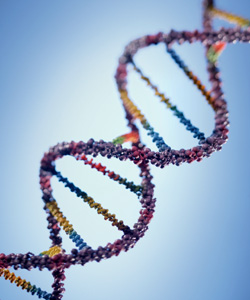
Nov. 21, 2012 – The U.S. Supreme Court may soon decide whether states can collect DNA samples from individuals upon arrest for serious crimes, just as Wisconsin lawmakers prepare to propose a law requiring felony and some misdemeanor arrestees to submit DNA samples.
Currently, only individuals who are convicted of felonies and certain sex-related misdemeanors are required to submit DNA samples under Wis. Stat. section 973.047. All 50 states and the federal government have laws allowing DNA collection upon conviction.
However, Gov. Scott Walker announced plans last April to implement a “DNA at Arrest” law, noting that at least 25 other states and the federal government require police to collect DNA samples from suspects in certain crimes, mostly felonies, upon arrest.
One of those states is Maryland. In addition to individuals convicted for felony crimes, the Maryland’s DNA Collection Act requires police to collect DNA samples from individuals charged with burglary or crimes of violence, or attempts to commit those crimes. Like other states, the law also allows the state to store DNA records to compare with other DNA databases.
The U.S. Supreme Court recently agreed to review a challenge to Maryland’s law in Maryland v. King, a case in which police took a DNA sample from Alonzo King upon his arrest for assault in 2009. Law enforcement submitted the sample to a DNA database, and it matched DNA uncovered in a 2003 rape and robbery case. Thus, King was also charged for the 2003 crimes.
He was ultimately convicted and sentenced to life in prison.
Before trial, King moved to suppress the DNA evidence, raising a Fourth Amendment challenge to Maryland’s law. The Fourth Amendment protects people from unreasonable searches and seizures. King says collecting DNA from a person before conviction is unreasonable.
On appeal, Maryland’s highest court sided with King. Now the U.S. Supreme Court may decide the scope of state laws allowing collection of DNA at arrest. Criminal lawyer Marcus Berghahn says the constitutionality of such laws may depend on the way in which DNA is used.
“Where the purpose of the DNA collection is the detection of crime and prosecution of an individual, the statute will not likely be constitutional,” says Berghahn of Hurley, Burish and Stanton in Madison. “To the extent that the DNA collection is framed as using the data obtained from the DNA to identify the individual, the statute may be constitutional.”

“To the extent that the DNA collection is framed as using the data obtained from the DNA to identify the individual, the statute may be constitutional,” says Marcus Berghahn, Madison.
Surcharge Would Fund Law
Maryland v. King may impact Wisconsin’s plans to develop a DNA at Arrest Law, as Gov. Walker has vowed to include those provisions within the 2013-15 state budget bill next session.
The Wisconsin Supreme Court usually interprets Article I, Section 11 of the Wisconsin Constitution, which protects individuals in Wisconsin against unreasonable searches and seizures, in accord with the U.S. Supreme Court’s interpretations of the Fourth Amendment.1
In line with Gov. Walker’s plans, the Wisconsin Department of Justice has asked for a statutory change requiring courts to impose a $250 DNA surcharge against convicted felons and a $150 surcharge for all other criminal cases, regardless of whether a DNA sample was taken.
Currently, courts have the option to impose a $250 surcharge against convicted felons under Wis. Stat. section 973.046. It’s not required, and sentencing courts must consider various factors – including whether police took a DNA sample from the defendant – before imposing it.
However, there is no current provision allowing Wisconsin courts to impose DNA surcharges against those convicted of non-felony crimes.
The DOJ estimates the surcharges would fund the additional personnel and other expenses required to process an estimated 68,000 new DNA samples from those arrested of qualifying crimes. The DOJ is asking for about $2.2 million for 2014 and about $5 million for 2015.
The Wisconsin Legislature failed to pass DNA at Arrest bills in both of the last two sessions. In 2011, the State Bar of Wisconsin’s Individual and Civil Liberties Section opposed the bills, in part because they did not include an expungment mechanism. Reportedly, any 2013 proposal would include a mechanism to expunge the DNA samples of individuals who are never convicted.
Constitutionality of DNA at Arrest Laws
Of the approximately 25 states that have DNA at Arrest laws, most have passed those laws within the last five years. Thus, Maryland v. King presents the first opportunity for the U.S. Supreme Court to decide whether such laws are constitutional under the Fourth Amendment.
Courts have held that taking DNA samples constitutes a search under the Fourth Amendment. Berghahn says the central question is whether the government’s interest in collecting DNA samples from suspects at the charging stage outweighs the suspect’s expectation of privacy.
“King’s best argument is that an individual who has been arrested has a reasonable expectation of privacy in his DNA,” Berghahn said. “The data about an individual contained in one’s DNA is vastly greater that what can be found in a fingerprint.”
The U.S. Courts of Appeals for the Third and Ninth circuits have upheld federal laws that permit the collection of DNA samples before conviction.2 About five states have also ruled on the issue under state DNA at Arrest statutes, with differing results.3
For instance, the Minnesota Legislature passed a DNA at Arrest law in 2005 and it was struck down by an appeals court the following year. The court ruled that a person’s expectation of privacy is not diminished at arrest because those persons are innocent until proven guilty.4
In Virginia, however, the state supreme court upheld a DNA at Arrest law on the grounds that, like fingerprints, suspects do not have an expectation of privacy in their identities.5 That’s what Maryland’s attorney general is now arguing in Maryland v. King.
“The only information being obtained from King by the analysis of his buccal swab goes to his biological identity, and arrestees have no objectively reasonable expectation of privacy in their identities,” the state of Maryland argued in its petition for writ of certiorari.
The petition noted that last year, 11 state legislatures considered DNA at Arrest bills as an expansion to lawful DNA at Conviction statutes. “States that are contemplating expanding their DNA collection statutes to include arrestees must know if the Fourth Amendment allows it.”
Wisconsin is one of them.
Joe Forward is the legal writer for the State Bar of Wisconsin.
Endotes
1 See State v. Felix, 2012 WI 36, 339 Wis.2d 670, 693, 811 N.W.2d 775, 787 (Wis., 2012).
2 U.S. v. Mitchell, 652 F.3d 387 (3rd Cir. 2011) (upholding 42 U.S.C. § 14135a(a)(1)(A), which permits the collection of DNA samples from individuals who are arrested, facing charges, or convicted under federal law.); U.S. v. Pool, 621 F.3d 12313 (9th Cir. 2010) (rehearing en banc granted).
3 See Constitutionality of Collecting DNA from Arrestees, Wisconsin Legislative Council, Information Memorandum (Aug. 20, 2012).
4 In re Welfare of C.T.L., 722 N.W.2d 484 (Minn. Ct. App. 2006).
5 Anderson v. Commonwealth, 650 S.E.2d 702 (Va., 2007).
